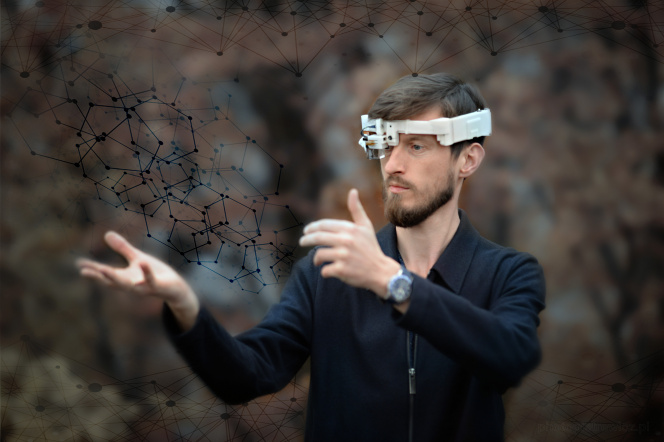Date added: 2020-12-08
Innovative artificial intelligence laboratory at Gdańsk University of Technology

AI Living Lab is a modern, well-equipped laboratory in the field of intelligent solutions integrated into the human environment (Internet of Things IoT, ambient intelligence, ambient assistive living, etc.).
– This will be a space for research and training related to the practical applications of artificial intelligence – explains Prof. Jacek Rumiński, head of the Department of Biomedical Engineering at the GUT ETI faculty. – In the laboratory demonstrations will be prepared to show the possibilities of using artificial intelligence in supporting care for the sick and the elderly, in smart homes, in home automation or in medical diagnostics.
The laboratory will also educate students in the ‘Artificial Intelligence’ specialization (MSc studies in biomedical engineering). These new, specialized studies will commence at the GUT ETI faculty in February 2021, and the program will include 14 AI-related subjects.
Modern equipment and apparatus - for scientists, but not only
The studio is co-created by the consortium of Gdańsk University of Technology and VoiceLab.AI as part of the so-called Digital Innovations Hub, and will also be open to cooperation with the industry and business environment. Scientists and students using AI Living Lab will have the opportunity to use very modern equipment, including:
- computing servers (including NVIDIA DGX-Station, DGX-1 and other professional servers equipped with GPU),
- computers with NVIDIA Tesla T4, RTX and other graphics cards,
- microcomputers and SI inference modules (including NVIDIA Xavier, NVIDIA Nano, Google Coral, etc.),
- programmable robots and drones (including Parrot, DJI; traditional and thermal imaging cameras; driving and flying drones),
- smartphones and tablets,
- virtual, augmented and mixed reality devices (including Oculus Quest, HoloLens II sets, eye-trackers, etc.),
- medical diagnostic devices.
– The laboratory is also part of the development of infrastructure supporting scientific research and stimulation of commercial projects in the field of AI - adds prof. Jacek Rumiński. - We hope that our studio will significantly contribute to the development of both young scientists and employees of startups and companies, as well as everyone interested in AI in the region and throughout the country.
Creation and equipping of the laboratory was possible thanks to the own funds of the ETI faculty, the Department of Biomedical Engineering at GUT, grants from the Ministry of Science and Higher Education as part of the development of the FETI IT infrastructure (server purchase) and funds from the DIH4.AI project. Scientists also point out that greater possibilities of using the resources in the laboratory will be open only after the end of the epidemic or the lifting of restrictions related to it.

